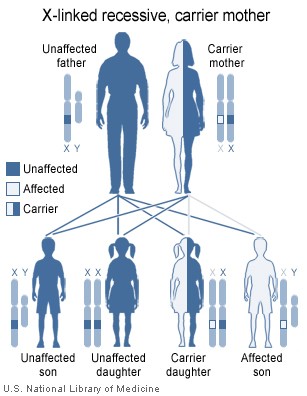PROVIDENCE, R.I. -- Sention Inc. today announced that it has entered into an exclusive licensing and research collaboration agreement with Merck & Co., Inc. (NYSE: MRK) to develop a family of Merck compounds known as mGluR5 antagonists as potential treatments for Fragile X mental retardation. Fragile X is the most commonly inherited form of mental retardation.
The use of metabotropic glutamate receptor (mGluR) antagonists for the treatment of mental retardation was first suggested by Mark Bear, Ph.D., one of Sention's founders. The agreement provides Sention with access to preclinical drug candidates discovered by Merck, the development of which Sention is pursuing at its own expense with the intention of moving a candidate into clinical trials. The agreement also allows Sention to develop the drug for Down Syndrome and includes an option to develop the drug for Huntington's Disease.
"Abnormal mGluR signaling offers a clear molecular logic behind a diverse constellation of symptoms associated with Fragile X syndrome. An exciting prospect is that some or all of these symptoms could be improved by drug therapies that specifically target signaling by mGluRs," said Dr. Bear, Professor of Neuroscience at the Picower Center for Learning and Memory at MIT.
Since licensing the use of mGluR antagonists for Fragile X from Dr. Bear's laboratory, Sention has worked closely with FRAXA, the Fragile X Research Foundation, which funds some of Dr. Bear's work. "We are thrilled that these companies are collaborating to work toward providing a therapeutic option for our children. We're excited to see Dr. Bear's work move closer to the clinic and look forward to working with Sention and Merck in the hopes of seeing this happen," said Michael Tranfaglia, M.D., Medical Director and Co-Founder of FRAXA.
"Merck is pleased to enter into this collaboration," said Dennis W. Choi, M.D., Ph.D., Executive Vice President, Neuroscience at Merck. "Dr. Bear's work represents a potential scientific breakthrough, and this agreement with Sention offers the opportunity to work toward translating this science into clinical practice."
"This collaboration with one of the world's premier pharmaceutical companies represents a significant milestone for Sention," added Randall Carpenter, M.D., President and CEO of Sention. "The agreement exemplifies an ideal synthesis of academic research, non-profit foundation support, small biotech innovation and large pharmaceutical company resources and know-how. Most importantly, we hope to advance an mGluR5 antagonist into clinical development for Fragile X, a syndrome that currently has no therapeutic options."
About Sention Inc.
Sention Inc. is a pharmaceutical development company focused on the discovery and development of drugs to treat cognitive impairment and other central nervous disorders. Sention has a pipeline of proprietary compounds in preclinical development that have shown efficacy in a variety of animal models of memory, cognition, and other central nervous system conditions. Sention has two compounds in clinical trials, C105 in Phase II for cognitive impairment and SN522 in Phase I for the enhancement of learning and memory.
Sention is a privately held company located in Providence, RI. For more information, please visit www.sentionpharma.com.
COPYRIGHT 2005 Business Wire
COPYRIGHT 2005 Gale Group



